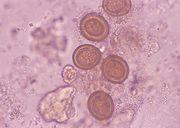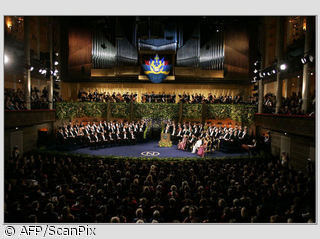Company working with universities to create courses that teach students to write secure code
Published:
22 March 2003 y., Saturday
Microsoft is working with a number of universities in several countries to set up courses that teach students how to write secure code, the company said Friday. The University of Leeds in England is the first to announce such a course.
As part of an 11 week module that will start in January next year, third-year undergraduates at the University of Leeds will be asked to hack into software and fix any security bugs they find, Nick Efford, senior teaching fellow at the School of Computing, University of Leeds, said.
Students will be confronted with security vulnerabilities such as buffer overruns and taught how to prevent those when writing software. That focus on security in software engineering and the hands-on experience makes the course different from most existing security classes, which typically focus on network security and cryptography, according to Efford.
Microsoft is partly funding Efford's fellowship and is helping with the curriculum's content. The Redmond, Washington, software maker is in talks with other universities on similar programs, Stuart Okin, chief security officer for Microsoft in the U.K. said.
Šaltinis:
infoworld.com
Copying, publishing, announcing any information from the News.lt portal without written permission of News.lt editorial office is prohibited.
The most popular articles

The European Commission announced today the award of three of the six contracts for the procurement of Galileo’s initial operational capability.
more »
 A British airline pilot says he hopes to become the world's first rocketman by the end of the year.
more »
A British airline pilot says he hopes to become the world's first rocketman by the end of the year.
more »
 Development plans to include exploiting local potential for environmental research and pharmaceuticals.
more »
Development plans to include exploiting local potential for environmental research and pharmaceuticals.
more »
 Sweet smell of success for researchers who've discovered how to enhance flower scent ten fold.
more »
Sweet smell of success for researchers who've discovered how to enhance flower scent ten fold.
more »
 French writer Jean-Marie Gustave Le Clezio wins the 2008 Nobel prize for literature.
more »
French writer Jean-Marie Gustave Le Clezio wins the 2008 Nobel prize for literature.
more »
 Two Americans and a Japanese scientist have won the Nobel Prize for Chemistry for their research on a glowing green protein found in jellyfish.
more »
Two Americans and a Japanese scientist have won the Nobel Prize for Chemistry for their research on a glowing green protein found in jellyfish.
more »
 Two French scientists who discovered the AIDS virus and a German who found the virus that causes cervical cancer are awarded the 2008 Nobel prize for medicine or physiology.
more »
Two French scientists who discovered the AIDS virus and a German who found the virus that causes cervical cancer are awarded the 2008 Nobel prize for medicine or physiology.
more »
 For rare earth and nano phosphors, luminescent materials for white LEDs, displays, general lighting and scintillator applications, McPherson delivers spectral test stations for deep ultraviolet (UV) excited, real-time measurements.
more »
For rare earth and nano phosphors, luminescent materials for white LEDs, displays, general lighting and scintillator applications, McPherson delivers spectral test stations for deep ultraviolet (UV) excited, real-time measurements.
more »
 On 30 September in Vilnius, a seminar, dedicated to the perspectives of international cooperation on solving the problem of chemical weapons dumped at sea, started.
more »
On 30 September in Vilnius, a seminar, dedicated to the perspectives of international cooperation on solving the problem of chemical weapons dumped at sea, started.
more »
 First stage of PRT-8 preparation for deployment to Afghanistan – refreshment of basic individual combat skills
more »
First stage of PRT-8 preparation for deployment to Afghanistan – refreshment of basic individual combat skills
more »
Germany's government is to spend six billion euros developing the country's hi-tech industries. The initiative will concentrate on research and development, particularly regarding high speed internet access, or "Broadband", as it is known.
more »